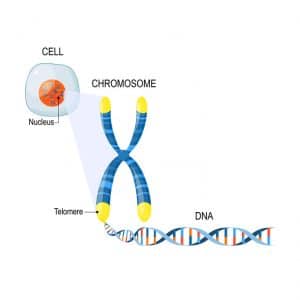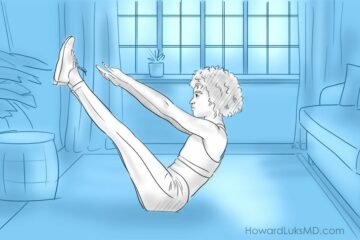
Can endurance running help us live better or live longer? We know that endurance running improves our cardiovascular health. How does running protect our DNA which in turn could lead to a healthier lifespan (healthspan)?
Anti-aging and longevity research has been quite the rage for a while now. The longevity literature is fascinating. It is also very confusing. Anyone who claims to understand it is likely kidding themselves. Aside from Metformin and Rapamycin, hopefully, most of you understand that there is no one simple action, diet or supplement that will extend your life. Should extending our lives be the focus? Or should improving our healthspan, and enhancing our ability to stay active longer be our primary goal?
This article discusses the potential anti-aging effects of running. Let’s start to explore the topic of longevity from a low tech perspective. I’m going to start to get deeper into the weeds as the months go on in 2019. This is a highly technical and difficult area to understand with any certainty. As an aging Orthopedic Surgeon, this is an area that interests me enormously. Obviously, I’m glad to hear that running may increase the chance that I will live longer, or live better, but it is also obvious to me that there is much more involved. Let’s get on with this.
Can Endurance Running Make You Live Better?
The folks at Runners World wrote this in response to the paper I linked to above. In their article, the writers at Runners World tried to summarize the beneficial anti-aging effects of endurance running. As is typical in the lay press, they are trying to draw simple conclusions from one paper among tens of thousands that all have varying takes on what might enable us to live a better life. Don’t misunderstand me, I’m happy to see this scientific paper… but it touches on but only one small aspect of living better…. and potentially longer. What exactly did the paper demonstrate? The paper showed that certain DNA strands of endurance runners had longer telomeres.
What is a telomere?

Healthspan versus Lifespan
Bear with me please :-) Healthspan is arguably more important than lifespan. Right? We don’t want to live an extra 10 years if those ten years are spent with debilitating chronic diseases. Chronic disease and frailty exposes us to a very common final common pathway towards our demise: falling. The fall itself might be the cause of death, or we might die due to complications of bedrest, fractures, and surgery. A long healthspan implies that we stay strong, active, and cognitively intact longer. We don’t necessarily live longer, we live better. Ultimately everyone will succumb to chronic disease. The goal of improving our healthspan is to keep us active, alert and mobile to the very end. Longer telomeres are associated with a longer healthspan and less of a burden due to chronic disease.
Can Running alone improve our healthspan?
Longevity is affected by many variables … Maintaining social contacts and having less stress is also critical to maintaining a long healthspan. Maintaining mobility (and functional movement) is also critical to an improved healthspan. You should be able to squat down and pick something up without assistance. This alone is a marker for resiliency and the ability to survive and recover from a fall. Being able to squat and being able to crouch down and reach the ground has been linked to a longer, better healthspan. Exercise, diet and avoiding toxic habits are other common contributors to a meaningful improvement in our healthspan. Granted, no one should claim to know the ultimate diet that is right for everyone. The proper diet( for chronic disease avoidance AND longevity) requires work with professionals. The proper diet for people will ultimately be related to various dietary issues; CR=caloric restriction, versus DR=dietary restriction. That means that some people might respond to low carb, while others might not. Some people might respond to intermittent fasts, or water only fasts (think autophagy), while others might not tolerate them. Again, this is a topic we will cover this year.
Longer Telomeres and Endurance Running
So how exactly might endurance running improve my healthspan? Genetics plays an inevitable role in our healthspan. Both from a Mendelian perspective (the cards you were dealt) and from an epigenetic perspective. Epigenetics is quite fascinating. Epigenetics is how your DNA code is actually expressed in you. So, you may have a perfectly normal strand of DNA, but due to telomere length or some other damage, the protein or enzyme that your DNA coded for is altered which leads to degradation of your cellular function, or aging and demise. Longer telomeres are basically protective caps on your DNA which can be affected by endurance running. The longer people have exercised, on average, the longer their telomeres appear to be. This is not a binary issue though, because of genetics, lifestyle, dietary issues, and other toxic habits, our telomere length might not be what we want it to be.
Do you have questions regarding an Orthopedic injury or longevity?
Do you want to talk to an expert who can listen to you for 45-60 minutes and explain the options in detail?
Dr. Howard Luks offers remote guidance sessions to review your X-ray or MRI images and explain your options.
Dr. Luks has also received hundreds of requests for educational sessions on the topics discussed in his book, Longevity Simplified.
Bottom Line:
Endurance runners should continue running. We know that it doesn’t cause arthritis. We know that it is generally well tolerated, unless you stress your heart too much, so don’t push too hard for too long. Remember, atrial fibrillation is more common in endurance athletes than in age, and healthy matched controls. Long, slow runs should be your goal. Enjoy it, soak it in, and hopefully, your DNA will be better protected and your latter years happier and healthier.












